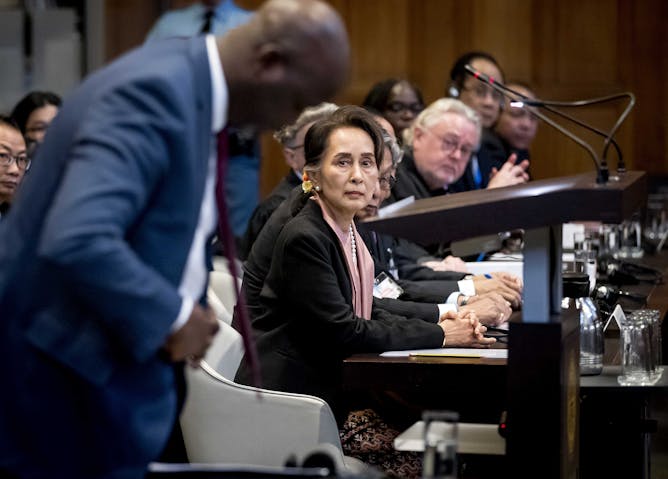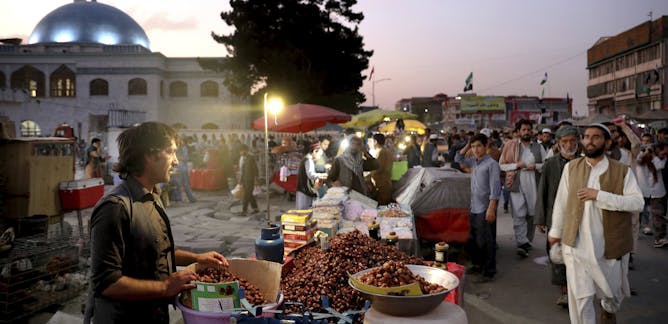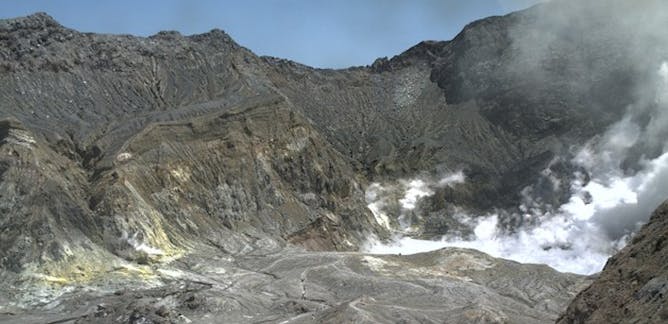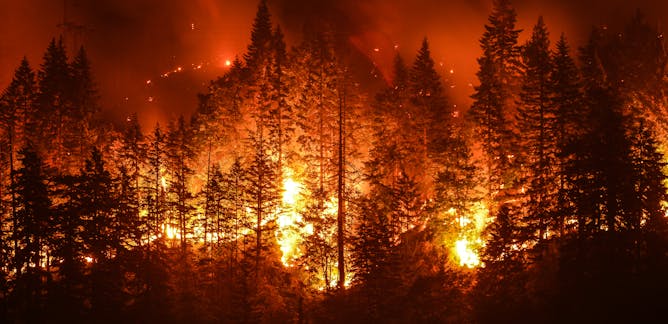
Aung San Suu Kyi and Myanmar’s legal team at the International Court of Justice in The Hague.
Koen Van Weel/EPA
Mauro Barelli, City, University of London
A case brought by the Gambia claims that Myanmar's military committed genocide against its Rohingya Muslim minority.
|
Politics + Society
|

Elizabeth B. Hessami, Johns Hopkins University
Building a lasting peace in Afghanistan will take much more than an accord with the Taliban. In post-conflict nations, economic development and job creation are critical to national security.
| |

Michael Lueck, Auckland University of Technology
Visiting an active volcano involves risk. Hazard monitoring systems can issue warnings but in the case of the privately-owned White Island, the decision to take a tour falls to tourism operators.
|
|
|
Energy + Environment
|

Bobby Duffy, King's College London
"It is worse, much worse, than you think."
| |

Joseph J. Bailey, York St John University; Franziska Schrodt, University of Nottingham
Non-living nature such as rocks, landforms, soil and water form the Earth's 'geodiversity' - a crucial part of the planet's life support system.
|
|
|
En español
|

Artemio Baigorri, Universidad de Extremadura; Manuela Caballero Guisado, Universidad de Extremadura
Hemos comprobado la escasa presencia del término 'cambio climático' en las asignaturas troncales, específicas y de libre configuración del currículo de la ESO en Extremadura.
| |

Rafael Camarillo Blas, Universidad de Castilla-La Mancha
Son todavía menos conocidos que Ramón y Cajal y Ochoa, pero estos cuatro investigadores estuvieron más cerca que nadie de lograr el galardón.
|
|
|